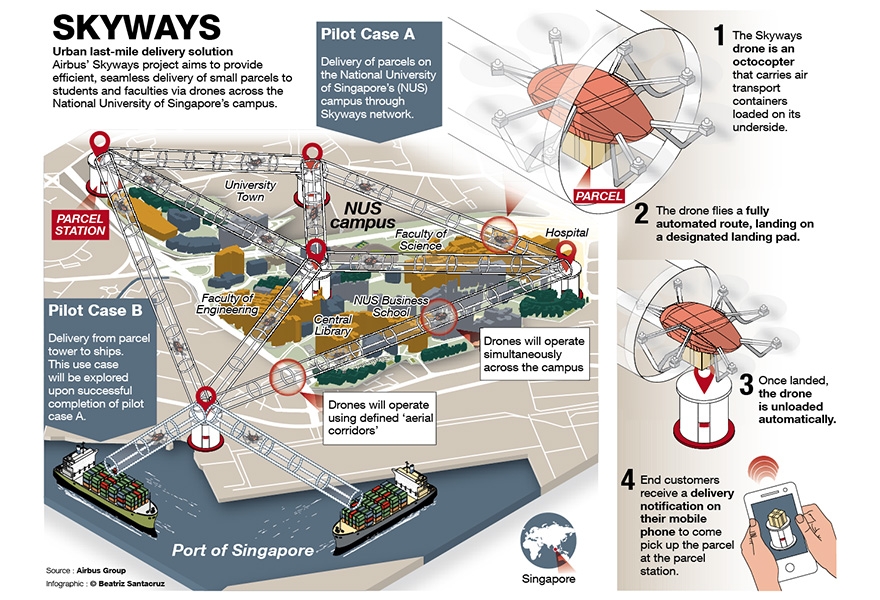Original Source: http://tcrn.ch/2b52NaG
 Ford might be looking to put self-driving cars into service for on-demand taxi scenarios by 2021, but that’s thinking small by Airbus standards – the aircraft manufacturer wants to make autonomous flying taxis a real thing for dense urban areas where traffic congestion is a real and growing problem.
Ford might be looking to put self-driving cars into service for on-demand taxi scenarios by 2021, but that’s thinking small by Airbus standards – the aircraft manufacturer wants to make autonomous flying taxis a real thing for dense urban areas where traffic congestion is a real and growing problem.
You probably won’t be able to hail a flying taxi by 2021, but Airbus wants to put a prototype in the air by 2017. Airbus’ A3 subdivision, an innovation-focused unit located in Silicon Valley, is working on building a self-flying vehicle platform codenamed Vahana (source of the namesake for those curious), which is designed to carry both individual passengers and cargo, which could also help it act as a last-mile provider for companies like Amazon.
Airbus’ project leader from the A3 group Rodin Lyasoff says in the company’s corporate magazine that putting Vahana in the sky by 2017 is doable, since the individual tech pieces needed to do that are “most of the way there,” including batteries, motor and basic avionic underpinnings. One of the biggest challenges the team currently faces from an engineering standpoint is building a comprehensive obstacle avoidance system – like the ones that help Google’s driverless cars navigate roads, but optimized for skyborne vehicles.
Demand for fleets of autonomous personal and cargo transport could eventually result in “millions” of aircraft deployed worldwide, according to Lyasoff, but there’s a huge hurdle in the way in terms of real world testing, since no country currently allows for the kinds of remote flights needed to prove viability of operating this kind of fleet in urban areas. But a drone parcel delivery service operated by Airbus has been greenlit for testing over Singapore’s National University campus starting in 2017, paving the way for future tests.
Long-term, Vahana’s ultimate end goal is to pave the way for shared autonomous vehicles that ferry passengers, which Airbus is calling “CityAirbus.” These would be bookable via smartphone by individuals who would then report to their nearest helipad to climb aboard and strap in for a ride with fellow passengers. Sharing with multiple users defray the cost, according to airbus, making this a more affordable autonomous ferry service closer to modern public transit options.
I guess this means we might actually get those flying cars we were promised?
More information to be found here: http://www.airbusgroup.com/int/en/news-media/corporate-magazine/Forum-88/My-Kind-Of-Flyover.html

